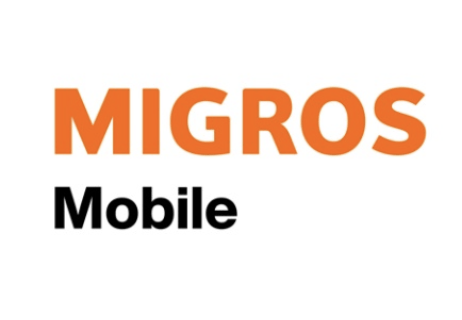Mobile plans for children in Switzerland: the complete guide for parents
More and more Swiss children have their own mobile phone, often as early as primary school. This technological development raises many questions for parents: at what age should a child receive a smartphone? What type of plan should you choose? How can you ensure safe use and keep costs under control? In Switzerland, mobile operators have understood these concerns and now offer subscriptions specifically designed for young users. This comprehensive guide helps you compare the best available options and make the right choice for your family’s needs.
Why give a child a mobile plan?
Giving a child a mobile phone is no longer just a trend – it meets several practical needs. Safety is one of the main reasons for parents: being able to reach their child at any time, especially on the way to school or during after-school activities. In case of an emergency, a bus delay, or a change of plans, the child can quickly contact their parents. We do not recommend smartphones for children under 12 years old – it is better to choose a simple phone without Internet access or mobile apps. A smartwatch can also be a good compromise to stay in touch easily. Beyond safety, a phone encourages a child’s gradual independence. They learn to manage their own communication device, follow usage rules, and develop a sense of responsibility. It is also the perfect opportunity to start conversations about digital responsibility and lay the foundation for safe online behaviour. Experts generally agree that the recommended age for a first phone is between 8 and 12 years, depending on the child’s maturity and actual needs. A student who travels alone by public transport will naturally need a phone earlier than a child who is always accompanied. The key is to guide this first experience with clear rules and proper supervision.
Children and their smartphone: the numbers
Switzerland – Children with their own smartphone (MIKE 2021)
Europe – Average daily smartphone usage time (ages 9–16)
Quellen: EU Kids Online 2020 • OECD 2025 • JAMES-Studie 2022 (Schweiz)
A mobile plan under 20 francs
In our selection, we prioritise mobile plans under 20 francs, perfectly suited for the needs of a child or teenager. These offers allow families to stay connected without exceeding their budget. Some plans even include unlimited data, which is often more than enough – if not slightly excessive – for a child. You’ll also find more balanced options with 5 GB, 10 GB or 20 GB of data, ideal for browsing the web, chatting on social networks, or watching a few videos while still keeping usage under control. Prices remain highly competitive, often well below standard adult plans. Don’t forget that several Swiss providers offer discounts through family plans – this allows you to add a line for your child at a lower cost, while managing all your subscriptions in one place.
Best practices for children with a smartphone
Set clear boundaries: Define usage times, avoid screens before bedtime, and limit screen time by age (max. 1.5 hours before age 10).
Activate parental controls: Install content filters, restrict in-app purchases, and monitor downloaded apps.
Avoid unsupervised access to social networks: Before age 13, most platforms are not recommended; prefer safe family messaging apps.
Guide your child’s usage: Talk together about what they watch, their online friends, and responsible behaviour (never share personal information).
Encourage offline activities: Sports, reading, and real-life games help maintain balance and creativity.
Adapt rules by age:
6–9 years: Smartphone limited to parental communication and educational games
10–12 years: First social interactions and learning digital independence
13–15 years: Broader use, but always with regular dialogue and reminders about privacy
Criteria for the right choice of a children’s mobile plan in Switzerland
Choosing a mobile plan for children requires special attention to several key factors. Unlike adult plans, offers designed for young users must prioritise safety and cost control.
A blocked or prepaid plan is the most recommended solution for parents who want to avoid unpleasant surprises. With these options, it is impossible to exceed the allocated amount: once the credit or data allowance is used up, the child can no longer make calls or use mobile data. This natural limit prevents high bills and helps the child become responsible for their own usage.
Limiting mobile Internet access is another essential criterion. For younger children, plans without Internet access or with a very small data allowance help reduce exposure to inappropriate content and prevent screen addiction. Some parents choose a calls-and-SMS-only plan, keeping Internet access limited to the supervised home Wi-Fi network.
The monthly price generally ranges from CHF 5 to CHF 20, depending on the services included. The cheapest plans cover only calls and SMS, while premium options include Internet data up to unlimited. The goal is to find the right balance between the family budget and the child’s actual needs.
Network coverage should not be overlooked. Major Swiss providers such as Swisscom, Sunrise and Salt offer excellent nationwide coverage, while low-cost operators like Wingo, Yallo and M-Budget use the same networks at more affordable rates.
Integrated or compatible parental control apps are an additional advantage. Some operators provide tools that allow content filtering, screen time limits, or blocking certain functions within time frames defined by parents.
Comparison of the main mobile plans for children
The Swiss market offers several options tailored to the needs of families. Here’s an overview of the most popular plans available in 2025.
For our selection of the best mobile subscriptions for children and teenagers in Switzerland, we focused on two key criteria. The first is price: we selected only plans under 20 francs, to offer affordable options suited to parents’ budgets. At this price level, the included services are more than enough for a child’s or teenager’s daily use. All selected plans include unlimited calls and SMS, an essential foundation for staying connected freely.
When it comes to mobile data, needs vary by age. Some plans offer little or no data, perfect for younger children who don’t need Internet access or video streaming. Others, more complete packages, include between 5 and 10 GB of data, ideal for more connected teenagers. Finally, there are also unlimited data plans for heavy users who regularly watch videos or even use their phone as a hotspot for their computer.
Practical tips for safe use
Giving a child a phone isn’t just about choosing the right plan — it’s also about setting up protection and guidance to ensure a positive and safe experience.
The initial phone setup deserves special attention. On iPhone, activate “Content & Privacy Restrictions” through Screen Time settings. On Android, use Google Family Link to create a supervised account. These native tools allow you to block in-app purchases, filter inappropriate content, and restrict app installations without parental approval.
Activating parental controls goes beyond system settings. Third-party apps such as Qustodio, Norton Family, or Screen Time provide advanced features: daily screen time limits, blocking specific websites, real-time location tracking, and detailed activity reports. Some Swiss providers also include filtering options directly in their mobile plans.
Clear usage rules should be set from the start. Define together when the phone can be used (commuting to school, emergencies) and when it must be turned off (family meals, homework, bedtime). A written “family contract” can help formalise these rules playfully: maximum screen time, no photo sharing without permission, and the obligation to answer parents’ calls.
Raising awareness of online risks begins with open discussion. Explain potential dangers simply: cyberbullying, sharing personal information, disturbing content, scams. Encourage your child to tell you right away if something online makes them uncomfortable. Emphasise this basic principle: nothing on the Internet is truly private, and anything shared can resurface years later.
Privacy settings should be configured restrictively. Disable geolocation except for essential apps, limit access permissions (camera, microphone, contacts), and set social media profiles to private once your child is old enough to use them.
Finally, keep your child’s phone accessible: know the unlock code and perform regular checks — always in a spirit of trust and transparency — to detect any problems early.
When should you switch to an “adult” mobile plan?
The transition to a more comprehensive mobile plan usually occurs during adolescence, between the ages of 13 and 16. At this stage, needs evolve significantly: teenagers use social networks more often, stream videos, and require more mobile data for their daily activities.
Signs that it’s time to switch plans include regular usage reaching the current plan’s limits, proven maturity in handling the phone, and increased academic needs (research, educational apps, communication with teachers). The transition to high school often marks this turning point.
Several Swiss operators offer special youth plans for those aged 13 to 26. These intermediate subscriptions provide more freedom (higher data volumes, unlimited access to certain apps) while remaining affordable. Sunrise Young, Swisscom Natel Infinity Young, and Salt Youth typically offer plans between CHF 20 and CHF 40 per month, with several gigabytes of data and unlimited calls.
Save with a family mobile plan
Family plans also represent an excellent option for this transition. Many providers allow multiple lines to be bundled under one contract with attractive discounts. This formula facilitates centralized management while maintaining some parental control over consumption. Even with a more generous plan, usage rules remain important. Adolescence is a time for learning autonomy, but it doesn't mean a complete absence of boundaries. Continue to regularly discuss phone usage, monitor screen time, and maintain family offline moments.
FAQ: Your questions about children’s mobile plans
Conclusion
Choosing the right mobile plan for your child in Switzerland requires finding the right balance between safety, budget, and actual needs. Swiss operators now offer a complete range of tailored plans, from basic subscriptions for a first phone to more advanced options for teenagers. The key is to accompany this technological step with open dialogue, clear rules, and proper safety tools. A well-managed phone can become a positive tool for your child’s independence and safety.
The prices listed are updated regularly and may not reflect temporary promotions offered by providers.



